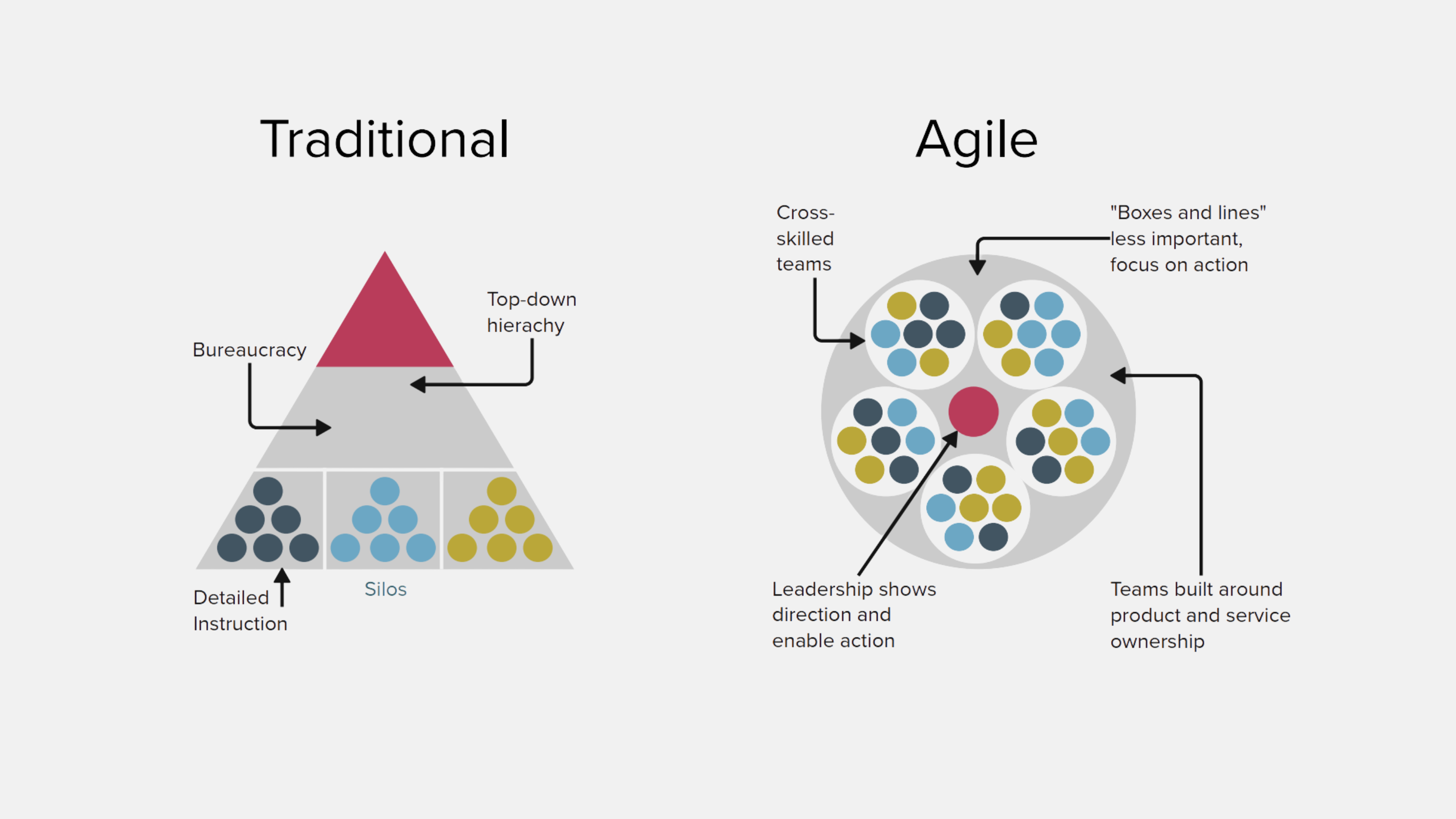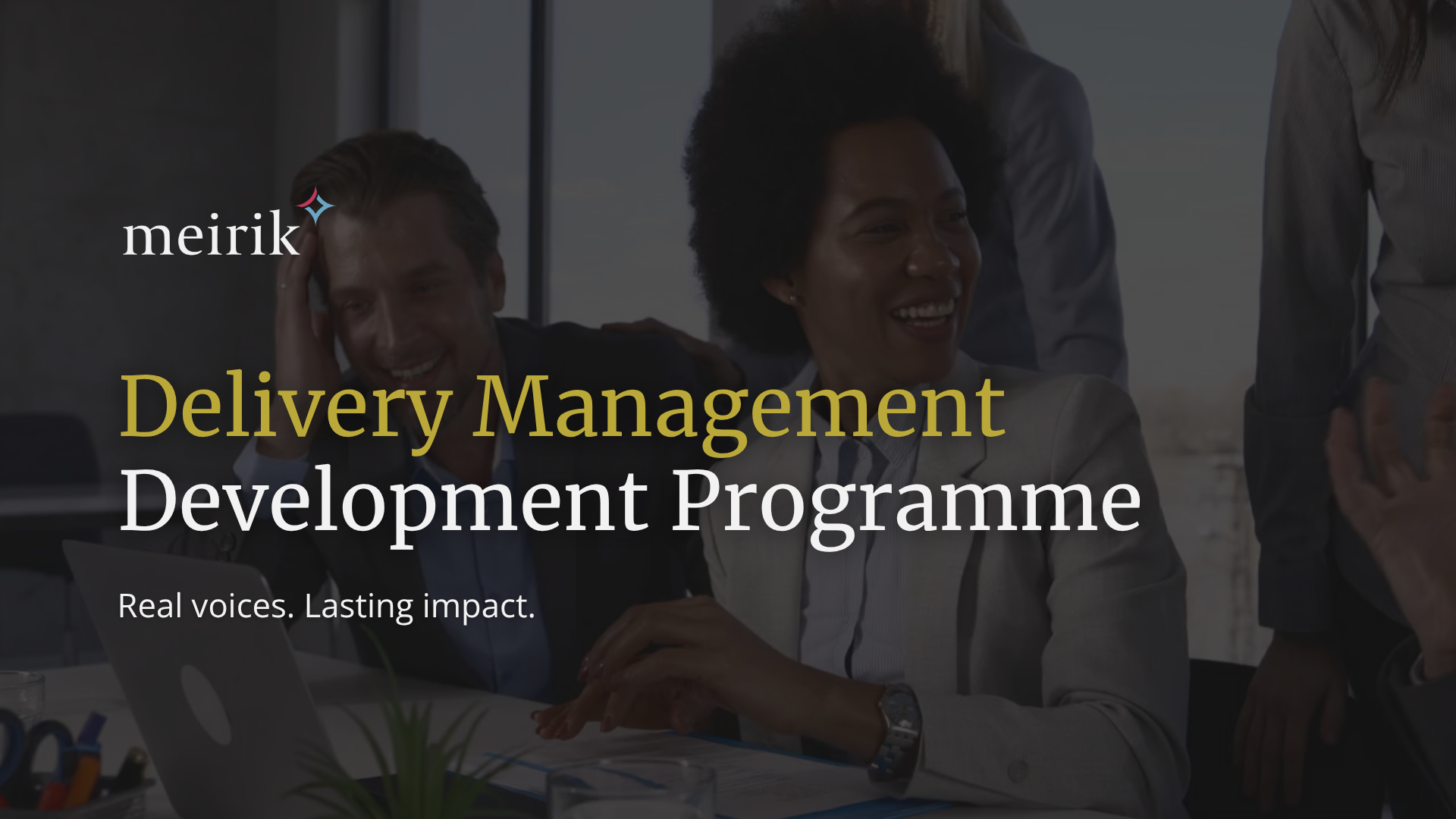Start Your Business Transformation
Organise for outcomes and align people on what matters.

Grow Talents In-house
On-demand training, dedicated to your organisational needs.

Secure Tomorrow's Potential with Agile


Business solutions

The world is changing at an increasing rate. Drive change by moving faster and rethinking your business model. Build a more nimble, resilient organisation whilst removing barriers to growth. We will guide you through your digital transformation journey and help build a fit-for-purpose and risk-hedged organisation with our enterprise agility solutions.
Training for Business
Confidence supported by solid competencies build leaders we all want to see. We will help you and your team become experts and win in the long run by having what it takes to transform your organisation. Our instructors are active practitioners of what they teach. They will share their real-life cases and experience applying the knowledge in practice.


Professional Development Programmes
Reinventing your business to keep up with the challenges of the modern world needs strong foundations. Our customers invest in capability building to assure long-lasting change that makes their business transformation happen. We will help you develop your people by providing professional development and training programmes focusing on improving leadership, management and team effectiveness.

Scheduled classes

You can choose from various Meirik original courses, accredited Scrum.org classes. Or ask us for help if you are in two minds.
Amplify your professional development and lead the change you want to see in the world. Let us teach you how. Our training is for everyone who wants to learn how to make a difference in their lives and organisations. We will help you to identify new applications, see potential problems before they arise, and make better decisions that result in increased productivity.
Our instructors are active practitioners of what they teach. They will share their real-life cases and experience applying the knowledge in practice.

Why us?
Focused, deep and sustainable change
No cutting corners, no shallow transformations that fail to make a real impact.
Optimal solutions for your unique context
You are in the driving seat, and we co-create the future organisation with you.
Identifying and acting on leverage points
That bring the greatest benefits for you, your teams and your organisation.
Improving the organisation while looking at the whole
Wary of unintended consequences, ensuring positive impact in both short and long term.
Seasoned and competent consultants
On a permanent basis, not just at the beginning of our engagement.
Pragmatic and method-agnostic
We select, combine or discover methods to provide you with the best results.

Agile Encounters Webinar Series
We show how to be more agile and enjoy your work, with the help of professionals and practitioners who either actively participate in business transformations. Topics like Agile mindset, Scrum, product management, and more are covered.
.png)
How to Start with Design Sprint

What's Possible with Kanban

Latest articles

Agile Organisations
.png)
Why Business Transformations Fail and How to Build the Capability to Succeed

Our partners


.png)

FAQ
Agile project management is still project management but run from a different, agile approach. It is a process that emphasises collaboration, flexibility, and constant iteration in order to deliver high-quality products. The agile ways of working were originally developed for software development projects, but it has since been adapted for use in a wide variety of industries. The key principles of agile project management are customer satisfaction, constant communication, early delivery, and frequent delivery. Agile project management is often used with Scrum, a framework that helps teams self-organise and track progress. While agile project management can be adapted to fit the needs of any organisation, it is particularly well-suited for fast-paced environments where change is the norm. Adopting agile ways of working changes the focus of organisations from managing projects to delivering outcomes by conscious product or service management
Agile project management methodology is a commonly used term in software development and IT. However, in fact, it is misused. There is no single Agile project management methodology or method. Agile is a broad approach defined by a set of values and principles. Implementing them in the project management discipline would lead to agile project management in the same way as adopting them in marketing would lead to agile marketing. Typically, when people refer to agile project management methodology, they mean a flexible and adaptable process that could be used in a variety of situations or helps teams complete tasks more efficiently by breaking them down into smaller, manageable parts. The agile approach is also scalable so that it can be used in projects of all sizes, and it’s beneficial because it helps to improve communication, increase transparency, and facilitate collaboration.
There are two main approaches to project management: agile and waterfall. Both have their own advantages and disadvantages, and it's important to understand the difference between them before choosing which one to use.Waterfall project management is a traditional approach that is based on linear progression. Each phase of the project must be completed before moving on to the next, and there is no going back to previous phases once they are finished. This can be beneficial because it allows for clear deadlines and a sense of structure. However, it can also be inflexible and leaves little room for error. The traditional approach works perfectly if there are no scope, budget, or timeline changes, and we are certain about the technology in use Agile project management is a modern approach that is based on iterations. Rather than completing the entire project at once, agile projects are divided into smaller pieces (called interactions or sprints) that are completed one at a time. This allows for more flexibility, creativity, and opportunities to make changes along the way. However, agile projects can sometimes feel less organised and more chaotic than waterfall projects. The agile approach works perfectly for complex projects with moderate or high uncertainty about what and how to deliver.The best approach to project management will vary depending on the specific project. In general, agile projects are best suited for complex projects or requiring a lot of user input, while waterfall projects are better for simpler projects with a clear scope.
Yes, it is. In the business world, time is money. That's why successful companies are always looking for ways to work more efficiently and get the most value out of every project. Agile project management is an approach that has gained popularity in recent years. Rather than following a traditional linear approach, agile project management emphasises collaboration, flexibility, and constant feedback. This actually doesn’t ensure that projects stay on track and meet deadlines, but it allows businesses to make changes, even late in development, and improvements along the way. While agile project management is not right for every company, it can be a valuable tool for those looking to increase effectiveness and optimise their workflow.
An agile project manager is responsible for the successful execution of agile projects. They are typically involved in all aspects of the project, from initial planning to delivery. Agile project managers need to have a good understanding of agile principles and practices and apply them to their projects' specific needs effectively. They must also be able to work closely with other agile team members, including developers, testers and product managers, to ensure that the project is delivered on time and within budget. In addition, agile project managers must be able to communicate effectively with stakeholders and keep them updated on the progress of the project.

